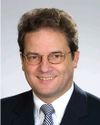Peter H. Hellmonds: Difference between revisions
No edit summary |
|||
| Line 15: | Line 15: | ||
Peter’s career began in 1977 with an apprenticeship in business administration, followed by six years in international business in Berlin, Germany and in Cairo, Egypt. | Peter’s career began in 1977 with an apprenticeship in business administration, followed by six years in international business in Berlin, Germany and in Cairo, Egypt. | ||
Upon completion of | Upon completion of his studies, he re-entered the workforce and joined the World Bank, creating strategies for advancing electronic networking with developing countries, and helped a number of African countries to achieve Internet connectivity. Peter commissioned the first Web server for the World Bank in 1993, later used for implementation of the Bank's new public information policy, set up a mobile computing task force, and established the Electronic Media Center at the World Bank in 1994. | ||
After his return to the private sector, Peter worked for the Swiss-Swedish Asea Brown Boveri (ABB) on structuring and negotiating the 2bn EUR project finance deal for the International Airport for Athens, Greece, and the 1.5bn USD privatization of the Jorf Lasfar Power Station in Morocco. Since joining Siemens in 1999, he negotiated telecommunications financing, served as Senior Advisor for International Financial Institutions, established an eGovernment Strategy for Siemens Business Services, and resumed his work related to the information society. | After his return to the private sector, Peter worked for the Swiss-Swedish Asea Brown Boveri (ABB) on structuring and negotiating the 2bn EUR project finance deal for the International Airport for Athens, Greece, and the 1.5bn USD privatization of the Jorf Lasfar Power Station in Morocco. | ||
Since joining Siemens in 1999, he negotiated telecommunications financing, served as Senior Advisor for International Financial Institutions, established an eGovernment Strategy for Siemens Business Services, and resumed his work related to the information society. | |||
He was involved the work of the World Economic Forum Digital Divide Initiative in 2001, participated in the Digital Opportunities Task Force of the G8 in 2002, and in the United Nations Information and Communications Technologies Task Force from 2002-2005, where he served as Chair of the Working Group on Human Capacity Building, eHealth and Local Content in 2005. Peter organized Siemens’ participation in both parts of the World Summit on the Information Society (Geneva, 2003 and Tunis, 2005) and participated in the negotiations. | He was involved the work of the World Economic Forum Digital Divide Initiative in 2001, participated in the Digital Opportunities Task Force of the G8 in 2002, and in the United Nations Information and Communications Technologies Task Force from 2002-2005, where he served as Chair of the Working Group on Human Capacity Building, eHealth and Local Content in 2005. Peter organized Siemens’ participation in both parts of the World Summit on the Information Society (Geneva, 2003 and Tunis, 2005) and participated in the negotiations. | ||
==Governmental Work== | |||
In early 2006, Peter was invited to participate in the work of the Commission on E-Business, Information Technologies and Telecommunications of the International Chamber of Commerce, and he was appointed to the Communications Expert Group of the German UNESCO Commission. He has served in the multi-stakeholder advisory group of the Internet Governance Forum ([[IGF]]) from 2006 to 2008, and, since the inception of the United Nations Global Alliance for [[ICT]] and Development ([[GAID]]) in 2006, he has been a member of its strategy council.<ref>[http://un-gaid.ning.com/profile/Peter?xg_source=activity ungaid.ning.com]</ref> | In early 2006, Peter was invited to participate in the work of the Commission on E-Business, Information Technologies and Telecommunications of the International Chamber of Commerce, and he was appointed to the Communications Expert Group of the German UNESCO Commission. He has served in the multi-stakeholder advisory group of the Internet Governance Forum ([[IGF]]) from 2006 to 2008, and, since the inception of the United Nations Global Alliance for [[ICT]] and Development ([[GAID]]) in 2006, he has been a member of its strategy council.<ref>[http://un-gaid.ning.com/profile/Peter?xg_source=activity ungaid.ning.com]</ref> | ||
In national German public affairs, he has been a member | In national German public affairs, he has been a member of the Public Affairs working group of BITKOM, the German ICT industry association, since 2002, and served as Executive Advisor to the Chairman of the Board of the German multi-stakeholder ICT Initiative D21, where he developed close working relationships with federal and state ministries, other businesses, and civil society. From 2006 to 2008, Peter also served as the Chairman of the German Broadband Initiative.<ref>[http://intgovforum.org/cms/speaker_bios_08/speaker_access_peter.html intgovforum.org]</ref> | ||
==Education== | ==Education== | ||
He earned a Bachelor of Science in Foreign Service degree from the School of Foreign Service of Georgetown University in Washington, D.C., a diploma in International Studies from the School of Advanced International Studies at Johns Hopkins University, Bologna, Italy, and a Master's degree in Public Affairs (MPA) from the Woodrow Wilson School of Public and International Affairs at Princeton University.<ref>[http://de.linkedin.com/in/phellmon linkedin]</ref> | He earned a Bachelor of Science in Foreign Service degree from the School of Foreign Service of Georgetown University in Washington, D.C., a diploma in International Studies from the School of Advanced International Studies at Johns Hopkins University, Bologna, Italy, and a Master's degree in Public Affairs (MPA) from the Woodrow Wilson School of Public and International Affairs at Princeton University.<ref>[http://de.linkedin.com/in/phellmon linkedin]</ref> | ||
Revision as of 14:53, 18 January 2011
 |
 |
| Country: | Germany |
| Facebook: | |
| LinkedIn: | |
| Twitter: |
Paul H. Hellmonds is Head of Public and International Affairs at Nokia Siemens Networks since January 2010. Prior to this, he was Head of Corporate Social Responsibility and acting Ethics Officer for Nokia Siemens Networks, from April 2007 until December 2010. Prior to that, as Vice President of Public and International Affairs at Siemens Networks, a subsidiary of Siemens AG in Munich, Germany, he was responsible for the development and communication of national and international information society strategies and initiatives.[1][2]
Career History
Peter’s career began in 1977 with an apprenticeship in business administration, followed by six years in international business in Berlin, Germany and in Cairo, Egypt.
Upon completion of his studies, he re-entered the workforce and joined the World Bank, creating strategies for advancing electronic networking with developing countries, and helped a number of African countries to achieve Internet connectivity. Peter commissioned the first Web server for the World Bank in 1993, later used for implementation of the Bank's new public information policy, set up a mobile computing task force, and established the Electronic Media Center at the World Bank in 1994.
After his return to the private sector, Peter worked for the Swiss-Swedish Asea Brown Boveri (ABB) on structuring and negotiating the 2bn EUR project finance deal for the International Airport for Athens, Greece, and the 1.5bn USD privatization of the Jorf Lasfar Power Station in Morocco.
Since joining Siemens in 1999, he negotiated telecommunications financing, served as Senior Advisor for International Financial Institutions, established an eGovernment Strategy for Siemens Business Services, and resumed his work related to the information society.
He was involved the work of the World Economic Forum Digital Divide Initiative in 2001, participated in the Digital Opportunities Task Force of the G8 in 2002, and in the United Nations Information and Communications Technologies Task Force from 2002-2005, where he served as Chair of the Working Group on Human Capacity Building, eHealth and Local Content in 2005. Peter organized Siemens’ participation in both parts of the World Summit on the Information Society (Geneva, 2003 and Tunis, 2005) and participated in the negotiations.
Governmental Work
In early 2006, Peter was invited to participate in the work of the Commission on E-Business, Information Technologies and Telecommunications of the International Chamber of Commerce, and he was appointed to the Communications Expert Group of the German UNESCO Commission. He has served in the multi-stakeholder advisory group of the Internet Governance Forum (IGF) from 2006 to 2008, and, since the inception of the United Nations Global Alliance for ICT and Development (GAID) in 2006, he has been a member of its strategy council.[3]
In national German public affairs, he has been a member of the Public Affairs working group of BITKOM, the German ICT industry association, since 2002, and served as Executive Advisor to the Chairman of the Board of the German multi-stakeholder ICT Initiative D21, where he developed close working relationships with federal and state ministries, other businesses, and civil society. From 2006 to 2008, Peter also served as the Chairman of the German Broadband Initiative.[4]
Education
He earned a Bachelor of Science in Foreign Service degree from the School of Foreign Service of Georgetown University in Washington, D.C., a diploma in International Studies from the School of Advanced International Studies at Johns Hopkins University, Bologna, Italy, and a Master's degree in Public Affairs (MPA) from the Woodrow Wilson School of Public and International Affairs at Princeton University.[5]
